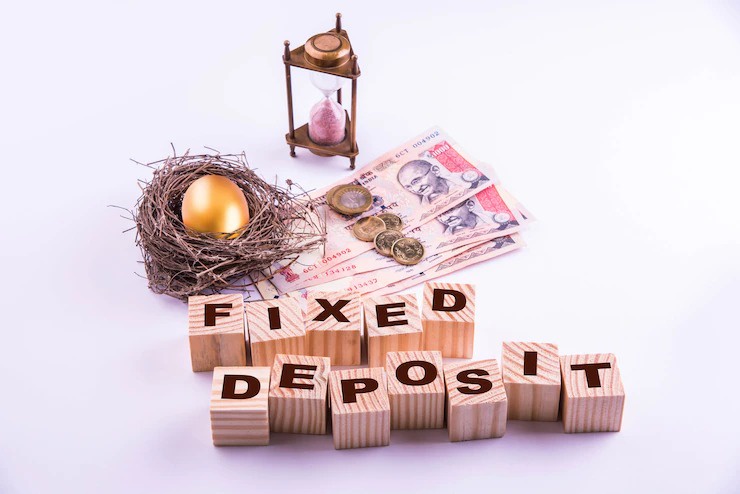One of the most favoured investment plans in India is fixed deposits. As an investor, you must be familiar with the different kinds of fixed deposit schemes and the considerations when selecting a fixed deposit scheme. Every aspect of fixed deposit plans is covered in this article.
Fixed deposits are low-risk investment solutions that enable customers to earn greater returns than standard savings accounts. The income earned on sums of online fixed deposits continues to build up over time. Fixed deposit interest rates vary from financial institution to financial institution (check for best rates using an interest rate calculator for FD). Most fixed deposits include a lock-in period during which the investor cannot withdraw money.
The following are the primary characteristics of fixed deposits:
- It is a secure avenue for investing
- It assists you in earning high interest (over a set period)
- It has a flexible tenure choice
- It has no maximum amount cap
- It offers specialised rates for seniors citizens
Types of Fixed Deposit Schemes
-
Standard Fixed Deposit Scheme
Almost all banks provide their customers with basic fixed deposit plans. In this scheme, you must deposit your money over a predetermined period, ranging from 7 days to 10 years. The most extraordinary thing about a standard FD is that it offers interest rates that are higher than those of a typical savings account.
Standard fixed deposit schemes often fall into one of two categories:
-
Cumulative Plan
The interest in a cumulative fixed deposit plan is due at maturity. Interest is compounded quarterly, annually, and every year.
-
Non-Accumulative Plan
The interest gets added either quarterly, monthly, or annually to your account. You should know beforehand that the interest earned if you select the non-cumulative option is taxable.
-
Tax-Saving Fixed Deposit Scheme
The best-secured FD program for claiming tax exemptions under Section 80C of the Income Tax Act is the tax-saving fixed deposit. The fixed lock-in term for the tax-saving fixed deposit is five years. Participating in this fixed deposit program can obtain an annual tax exemption of Rs 1.5 lakh. Tax-saver FDs currently offer interest rates ranging from 5 to 6%.
The Key Benefits of Tax-Saving FDs Are:
The 1961 Income Tax Act, Section 80C, lists the tax exemptions available under this FD scheme.
- Withdrawals are only permitted after five years or at maturity.
- A joint account is an option with tax-saving fixed deposits. However, only the primary holders are qualified to make a tax exemption claim.
- Interest rates for senior citizens are 0.50% more
Senior Citizen Fixed Deposit Scheme
Term plans with enhanced interest rates are available under the senior citizen fixed deposit program. The interest rate provided under this plan is 0.50 percent higher. You can select a senior citizen fixed deposit arrangement if you are older than 60. It features a regular payout option to conveniently make a consistent and reliable income to meet your daily financial needs. Senior citizens can also borrow money from the Senior Citizen Savings Scheme in times of need (SCSS). The maximum interest rate for SCSS loans is from 5.50% to 6.50% for terms up to 5 years (check current rates using an interest rate calculator for FD).
Benefits:
- It typically yields higher returns on investment and produces profitable earnings.
- Under Section 80C of the Income Tax Act of India, the SCSS plan is a tax-saving FDS that entitles participants to a tax exemption.
- The option of a regular payout provides more comfort and stability throughout retirement. And it serves as an additional source of income.
Fixed deposits for NRIs and NREs
There are primarily two types of deposits available if you are an Indian citizen who is not a resident.
-
Fixed Deposit NRE
It is the best alternative for people who earn foreign currency and want to convert it to rupees. The interest received under this program is tax-free, one of the main benefits of an NRE FD account.
-
Fixed Deposit NRO
The principal amount of the NRO fixed deposit is eligible for repatriation up to a predetermined maximum, but the interest earned is taxable. An investor may only deposit funds under this scheme in Indian rupees or foreign money. If you live abroad, India is where your wages come from.
-
Corporate Fixed Deposits
Investors frequently choose company fixed deposits as their investment. Compared to banks and NBFCs, this fixed deposit offers a greater interest rate. Risk increases in tandem with an increase in interest rate.
Conclusion
Choosing the ideal fixed deposit plan is crucial to achieving the most returns on your investment. But if you know the key variables before registering for a term deposit, you can choose the finest fixed deposit arrangement.


No comments yet